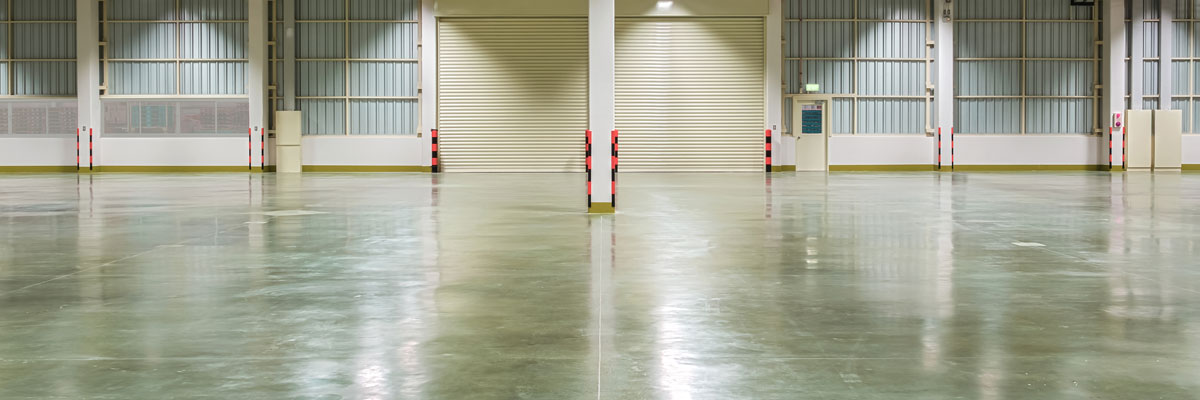Concrete flooring is a popular solution for businesses and even homes but there are many ways to achieve a durable concrete solution. Untreated concrete is porous, which means it absorbs chemicals, moisture, and oils which contribute to deterioration and stains over time. Commercial epoxy flooring and polished concrete are the two most common solutions to increase the performance of a concrete floor and protect it from damage. Each option comes with unique advantages and drawbacks. Here’s how commercial epoxy and concrete polishing compare.
Benefits of Polished Concrete Floors
Polished concrete is an eco-friendly and economical solution for commercial and industrial flooring. A diamond polishing machine slowly grinds down the surface of the concrete which hardens and densifies the surface. The concrete can be polished to varying levels of shine from 200 grit to 3,000 grit, which is so smooth it looks like liquid. Polished concrete offers many benefits:
— Reduces the environmental impact of the business
— Creates an ultra-smooth and clean surface with nothing that can flake, scratch, or peel
— Hardens and densifies the concrete by up to 40%
— Improves the flatness of the floor
— Boosts light reflectivity of the floor by about 100%
Polished concrete creates a beautiful and durable flooring solution but it’s best for light to medium service floors that will not be exposed to harsh chemicals, wet processing, food production, or environmental hazards. The floor also won’t have a higher compressive strength than unpolished concrete.
The polishing process can even out the concrete surface and remove surface imperfections but it’s not always a viable solution for old, cracked, or damaged concrete.
Benefits of Commercial Epoxy Flooring
Commercial epoxy floor coatings in Detroit are a common choice for abusive commercial and industrial environments. Epoxy can be used to add chemical resistance and stain resistance while improving the load rating of the concrete floor. This type of floor solution is created when a resin and a hardener are combined to create a chemical bond with the concrete substrate. Common reasons to choose commercial epoxy include:
— Improved durability and strength of the concrete
— Protects the floor against chemical spills and moisture
— Increases light reflectivity of the floor by up to 300%
— Creates a slip-resistant surface, especially when an additive is added
— Bonds with concrete or cement
— Hides damage to the floor
— Water-resistant flooring solution
If your commercial or industrial property isn’t a good candidate for polished concrete, commercial epoxy floor coatings are a better solution. Epoxy floor systems do not have the limitations that you will encounter with polished concrete. While there is a higher installation cost for epoxy compared to polished concrete, a commercial epoxy system improves the weight capacity and impact resistance of the concrete. It also withstands even extreme conditions in food processing, medical centers, and manufacturing facilities. Once fully cured, an epoxy system is incredibly resistant to alkalis, acids, solvents, and moisture which makes it ideal for hazardous conditions.

